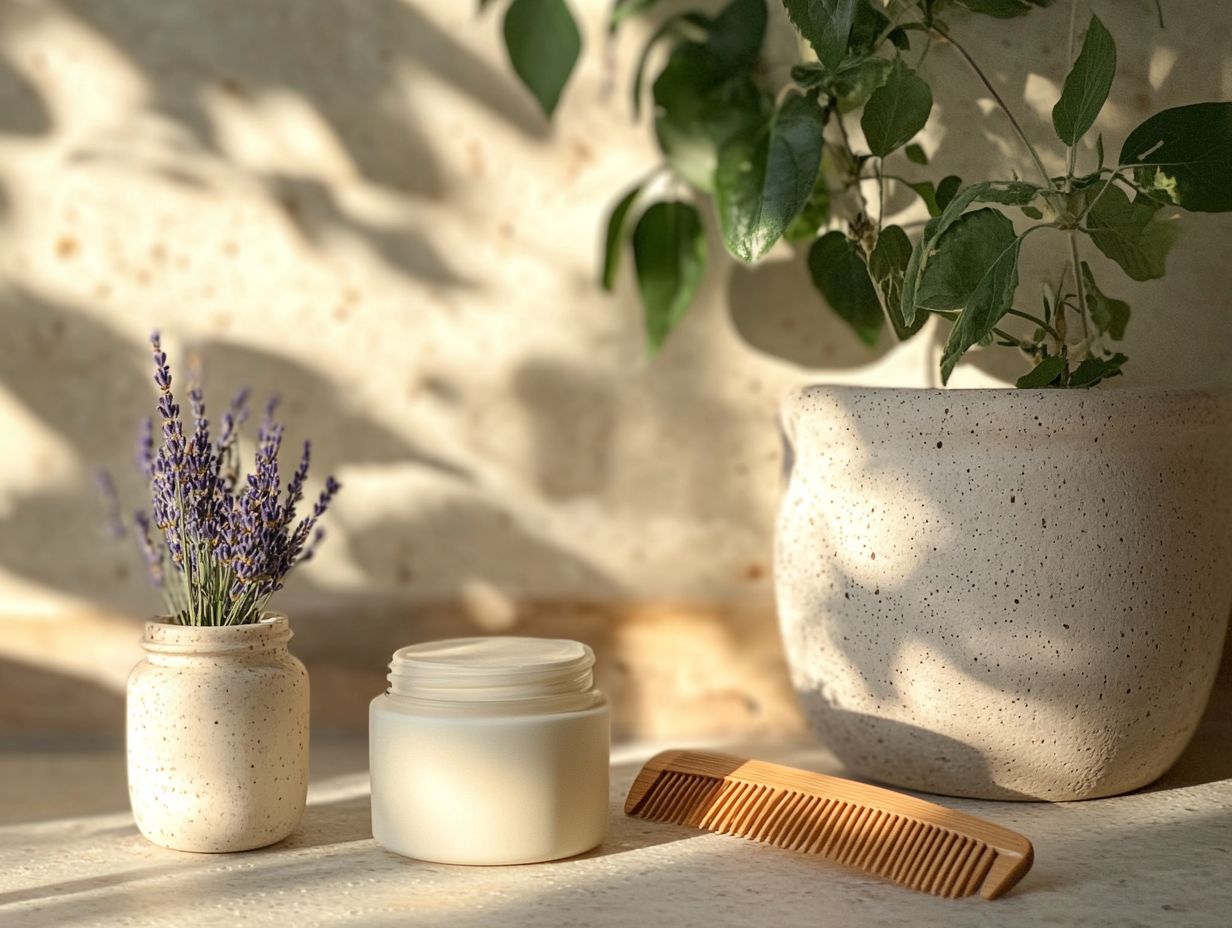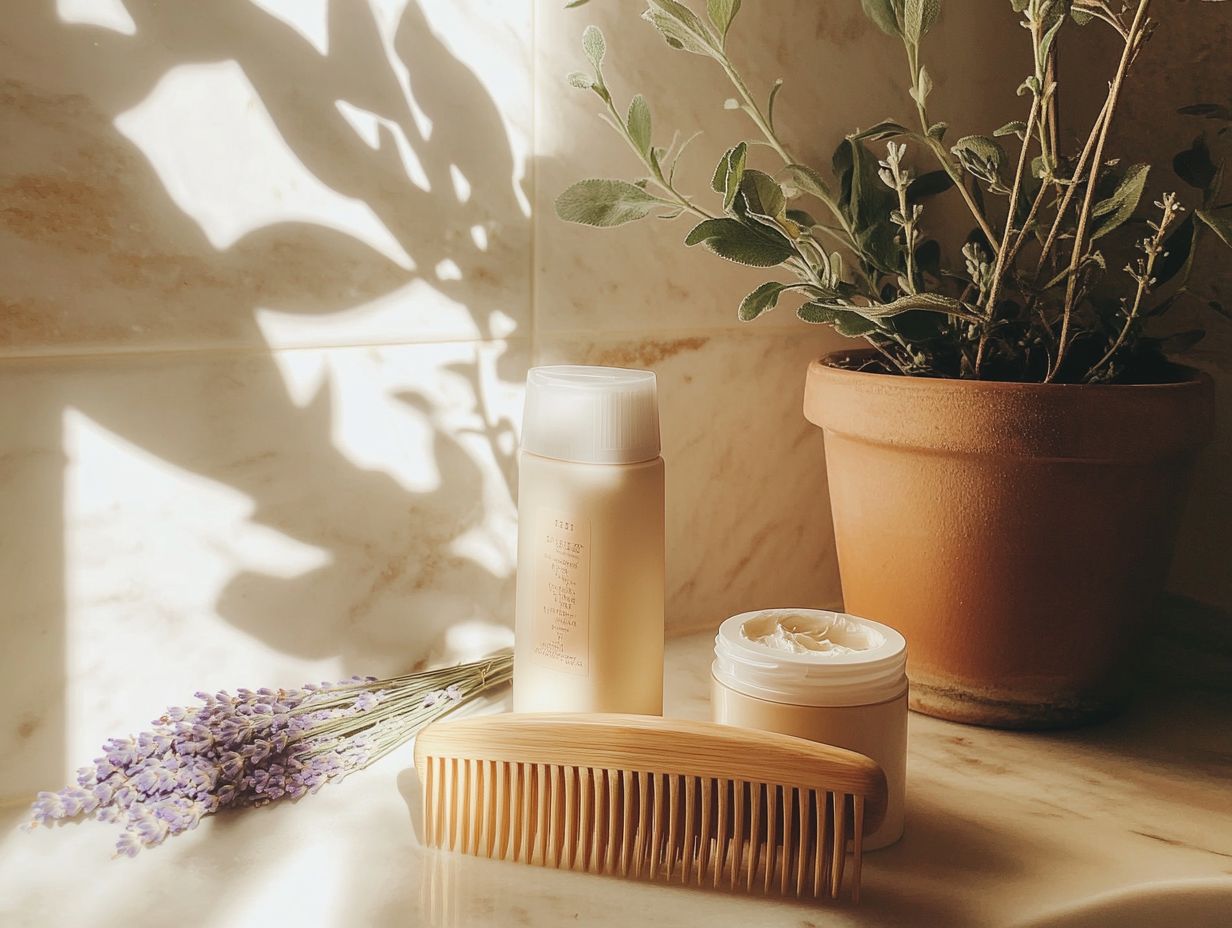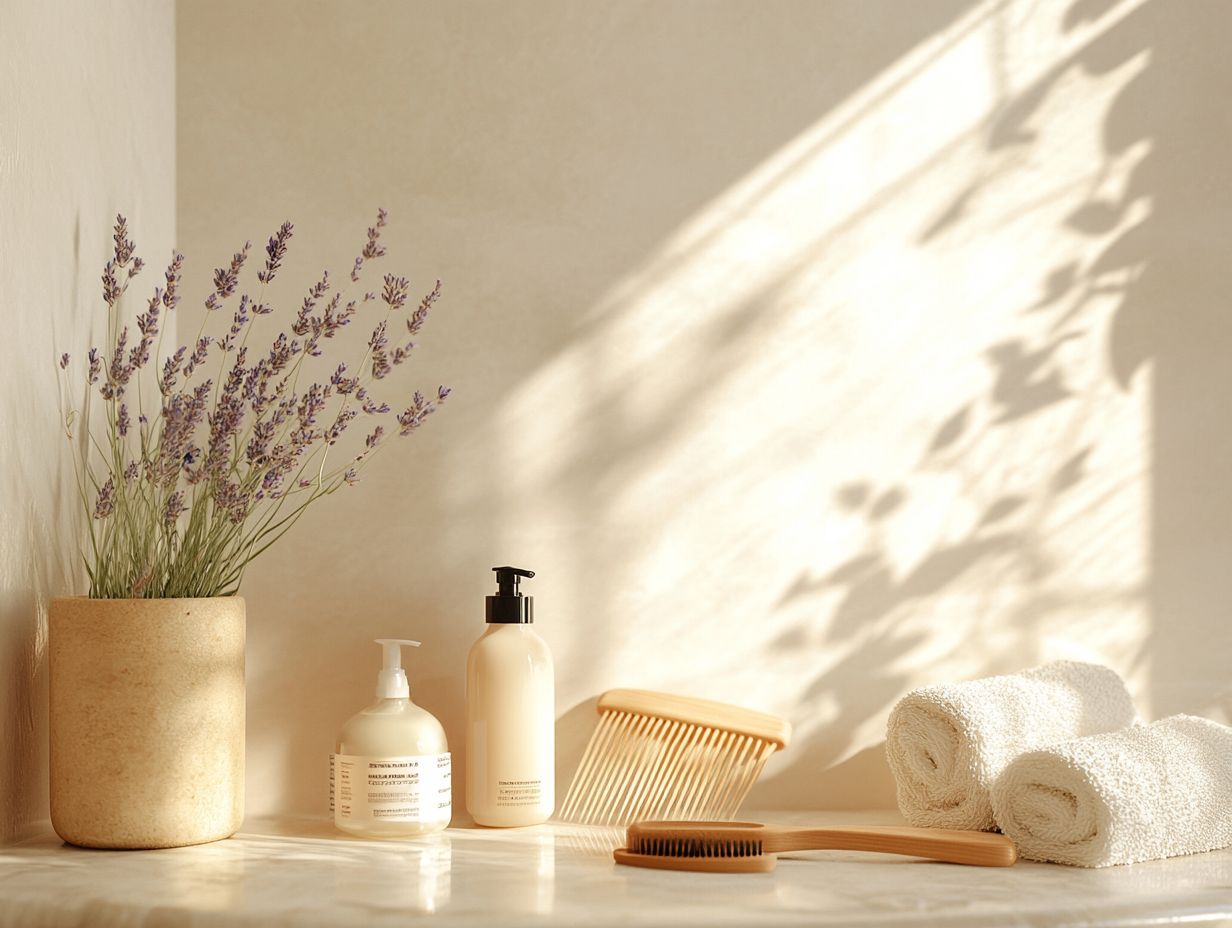In a world overflowing with beauty products, making the switch to natural options can feel daunting.
Embracing natural beauty products enhances your skin’s health and appearance while contributing positively to the environment.
This guide covers common misconceptions and cost-effective choices, highlighting the benefits of natural beauty.
Whether you’re looking to improve your skin or seek greener alternatives, there’s much to explore.
Table of Contents
Discover the many reasons to choose natural beauty for both yourself and the planet.
Key Takeaways:

- Natural beauty products can improve the health and appearance of your skin by avoiding harmful chemicals and ingredients.
- Switching to natural beauty products not only benefits your skin, but also the environment by reducing the use of harmful chemicals and waste.
- Contrary to popular belief, using natural beauty products can be cost-effective in the long run, as they often have longer lasting effects and require less product usage.
Defining Natural Beauty Products
Natural beauty products, commonly referred to as organic skin care, are formulated with natural ingredients derived from plant-based sources. These formulations promote skin health without incorporating harmful substances typically found in non-organic products. Such offerings resonate with health-conscious consumers who prioritize cruelty-free options and ethical sourcing, ensuring that their cosmetic choices positively impact both their well-being and the environment.
Unlike traditional cosmetic products, natural cosmetics emphasize transparency in their ingredient labels, which prominently feature organic and botanical components.
The definition of natural beauty products encompasses key attributes, including the absence of synthetic chemicals, preservatives, and artificial fragrances, which can be detrimental to skin health. Proponents of organic farming highlight sustainable sourcing practices that not only benefit the skin but also contribute to environmental protection. These products often utilize the advantages of nutrient-rich oils, herbal extracts, and essential nutrients, providing natural hydration and enhancing skin texture.
The growing demand for sustainable beauty has transformed the industry, encouraging brands to implement eco-friendly packaging and promote biodegradable formulations. This shift has led to a more responsible approach to beauty care, aligning consumer preferences with sustainable practices.
Benefits for Your Skin
The advantages of utilizing skin care products formulated with natural ingredients go beyond mere nourishment; they can substantially enhance skin health by minimizing the risk of skin irritation and allergic reactions commonly associated with harmful chemical ingredients found in non-organic products.
Natural beauty products utilize active ingredients derived from essential oils and vegetable oils to facilitate skin nourishment and overall well-being, offering a safer alternative for individuals with sensitive skin.
Improving Skin Health and Appearance

Improving skin health and appearance through the use of natural beauty products entails incorporating essential oils and botanical ingredients that deeply nourish the skin, thereby enhancing its overall texture and radiance. These natural alternatives not only confer significant benefits for the skin, but they also help maintain its vitality over time by avoiding the harmful effects associated with chemical ingredients commonly found in many conventional products.
For example, essential oils such as tea tree and lavender exhibit antimicrobial properties that effectively combat acne and reduce inflammation, making them suitable options for individuals experiencing breakouts. Botanical ingredients like aloe vera and chamomile offer hydration and soothing relief for irritated skin, promoting a balanced complexion. Additionally, ingredients rich in vitamins and antioxidants, such as rosehip oil, support skin rejuvenation and visibly diminish the appearance of scars and fine lines.
By incorporating these nature-derived elements into daily skincare routines, individuals can achieve a healthier, more luminous complexion while nurturing their skin with the inherent benefits of natural ingredients.
Environmental Benefits
The environmental advantages of selecting natural beauty products include a substantial decrease in the ecological footprint linked to conventional cosmetics. This choice promotes sustainability through organic farming practices and supports the preservation of biodiversity.
By opting for eco-friendly alternatives, consumers play a pivotal role in fostering a cleaner environment and a healthier planet, thereby underscoring the significance of ethical sourcing within the beauty industry.
Reducing Harmful Chemicals and Waste
Reducing harmful chemicals and waste constitutes one of the primary advantages of utilizing natural beauty products, which are specifically formulated to be toxin-free and are often subject to regulatory oversight to ensure safety and efficacy. In contrast to traditional cosmetic products, these alternatives refrain from incorporating chemical ingredients such as parabens and synthetic fragrances, resulting in safer usage and a diminished environmental impact.
By prioritizing sustainable sourcing and eco-friendly packaging, natural beauty products further contribute to waste reduction, minimizing the use of plastic whenever feasible and opting for biodegradable materials. Regulatory standards, such as the EU’s Cosmetics Regulation, ensure that these products comply with stringent safety guidelines while promoting transparency in ingredient listings.
Commonly avoided harmful substances include sulfates, phthalates, and artificial dyes, which have been associated with various health concerns. With a commitment to ethical production, these products not only benefit consumers by decreasing exposure to harmful toxins but also support a greener planet through responsible manufacturing practices.
Cost-Effective Options

Choosing natural beauty products can be a financially prudent decision in the long term, as these products typically offer greater value through enhanced safety and efficacy within a skincare regimen. This, in turn, contributes to improved skin health and a reduced necessity for supplementary treatments.
By selecting natural alternatives, consumers can achieve cost savings while ensuring that they utilize products that prioritize their overall well-being.
Saving Money in the Long Run
Cost-effective skincare options that incorporate natural products offer significant long-term financial benefits, as they often promote better skin health while reducing the necessity for expensive treatments. When consumers select high-quality natural products, they invest in their well-being without compromising safety or effectiveness.
By incorporating natural ingredients such as coconut oil, aloe vera, and shea butter into their daily routines, individuals can effectively substitute multiple store-bought items, including moisturizers, serums, and makeup removers. This approach not only streamlines their skincare regimen but can also lead to considerable financial savings over time.
For example, user testimonials indicate that transitioning to a natural oil for moisturizing has allowed them to eliminate the need for up to three separate products, resulting in healthier skin and reduced expenditure. As they experience improved skin conditions, such as decreased irritation and enhanced hydration, the advantages of natural skincare extend beyond mere financial considerations, fostering a harmonious combination of wellness and nourishment.
Common Misconceptions about Natural Beauty Products
Common misconceptions about natural beauty products frequently arise from misunderstandings concerning their effectiveness and safety. Such misconceptions can generate skepticism regarding their claims and efficacy when compared to conventional skincare options.
As a result, consumers may be dissuaded from adopting natural skincare, despite substantial evidence supporting the benefits of utilizing products that harness genuine qualities and natural ingredients.
Debunking Myths and Misinformation

Debunking myths and misinformation surrounding natural beauty products is crucial for promoting their true effectiveness and safety to potential users, as many prevalent beliefs are based on outdated information or personal anecdotes rather than scientific evidence. A comprehensive understanding of the regulations governing product safety can enable consumers to make informed decisions regarding the natural ingredients they select.
Numerous studies have demonstrated that specific natural components, such as plant extracts and essential oils, not only offer benefits for skin health but also exhibit antibacterial and anti-inflammatory properties. Research published in the Journal of Cosmetic Dermatology underscores the efficacy of ingredients like aloe vera and shea butter in addressing various skin conditions.
Conversely, some misconceptions suggest that natural products are universally ineffective when compared to synthetic alternatives; however, peer-reviewed studies frequently indicate that many natural formulations perform comparably, if not superiorly, in efficacy tests. By examining these research findings, consumers can develop a greater appreciation for the safety and potency of natural beauty solutions.
Making the Switch to Natural Beauty Products
Transitioning to natural beauty products can significantly enhance one’s skincare routine by providing improved nourishment and protection against harmful ingredients commonly found in conventional cosmetics.
By opting for these alternatives, consumers not only promote better skin health but also gain confidence in the safety and efficacy of the products they select.
Tips for Transitioning to Natural Products
Transitioning to natural products can be effectively accomplished with the right strategies. Gradually introducing natural alternatives into one’s skincare routine while meticulously reviewing ingredient labels for harmful chemicals is advisable. This method not only facilitates a smoother transition but also bolsters consumer confidence in the effectiveness and safety of the new products being adopted.
To initiate this journey, individuals should identify products that prominently feature natural ingredients, such as oils, herbal extracts, and botanicals. It is also advantageous to research brands that prioritize transparency, ensuring their formulations are devoid of toxic substances such as parabens and sulfates.
Developing a phased-out plan can significantly reduce dependence on synthetic items; for instance, focusing on one product category at a time—such as moisturizers or cleansers—can be effective. Additionally, exploring DIY options allows for customization tailored to individual skin types, resulting in a more personalized experience.
Ultimately, embracing natural beauty not only fosters healthier skin but also aligns with an eco-friendly lifestyle.


